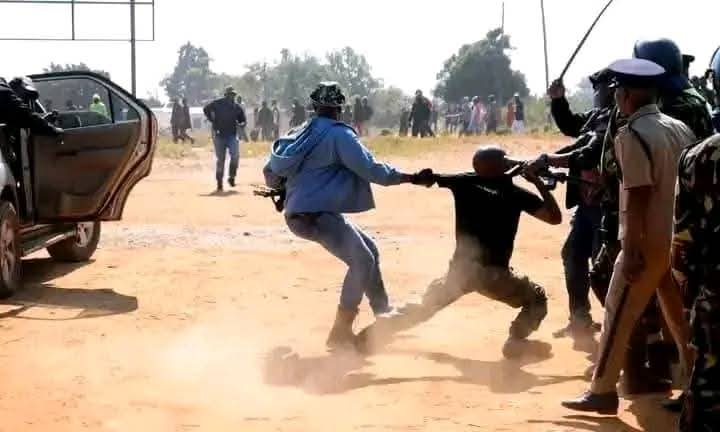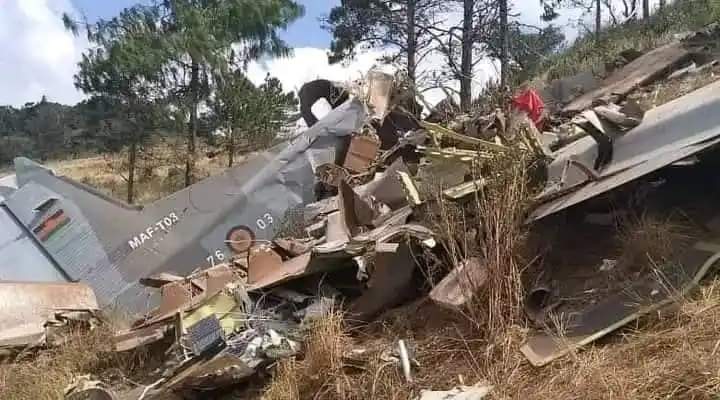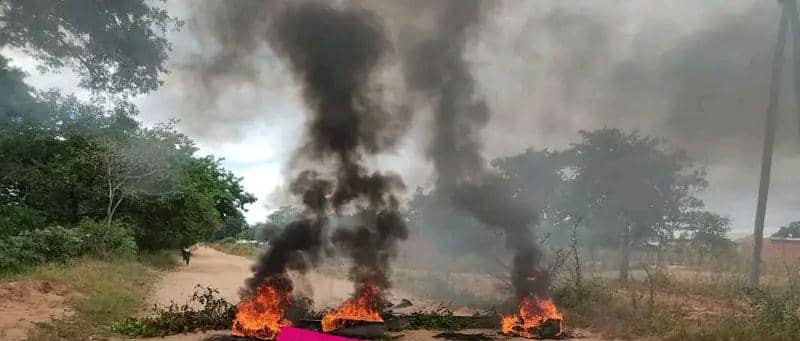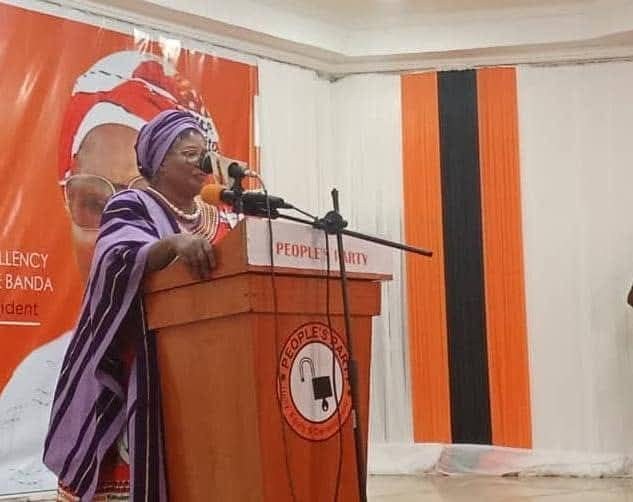By Burnett Munthali
The opposition Democratic Progressive Party (DPP) has accused the ruling Malawi Congress Party (MCP) of orchestrating violence during demonstrations that took place yesterday in Lilongwe.
The protests, which drew a large crowd at Lilongwe Community Ground, descended into chaos as two vehicles were set ablaze by unidentified assailants.
Organizers of the demonstrations were also targeted and attacked by individuals reportedly armed with panga knives, leaving several injured and prompting fears about the safety of political dissent.
DPP spokesperson Shadric Namalomba squarely placed the blame on the MCP, alleging that the ruling party was behind the violence that marred the protests.
Namalomba claimed that the MCP supplied the deadly weapons used during the attack and deployed thugs to disrupt what was meant to be a peaceful demonstration.
“Violence is in the DNA of the Malawi Congress Party, and they are the ones who bought the pangas and sent thugs to attack citizens who simply wanted to exercise their right to demonstrate,” said Namalomba.
He further criticized the MCP-led administration for what he described as gross economic mismanagement, adding that Malawians were sinking deeper into poverty due to poor governance.
According to Namalomba, the incident in Lilongwe was not an isolated event but part of a broader pattern of political intimidation being perpetrated under the current government.
However, the MCP has strongly rejected the DPP’s claims, insisting that it had no hand in the violent scenes witnessed at the demonstrations.
MCP’s second publicity secretary, Ken Msonda, responded by flipping the accusation, alleging that the DPP had a long-standing record of inciting political violence in Malawi.
“Everyone knows that this is the DPP’s style—sending people with panga knives to kill and intimidate others,” said Msonda.
Msonda emphasized that the ruling party was committed to peace and democratic values, and would never sponsor violence against any citizen.
The demonstrations were organized to demand the resignation of Malawi Electoral Commission (MEC) Chairperson Annabel Mtalimanja and Chief Elections Officer Andrew Mpesi.
Protesters cited alleged irregularities and mismanagement in the recent electoral processes as the basis for their demands, arguing that MEC had lost public trust.
The violent disruptions have sparked fresh concerns about the fragile state of democratic freedoms in Malawi and the increasingly volatile relationship between the country’s major political parties.
As the blame game intensifies, civil society groups and rights activists have called for an independent investigation into the violence to establish the truth and hold perpetrators accountable.
The Lilongwe demonstrations were intended to be a peaceful expression of democratic rights, but instead they have become another flashpoint in Malawi’s tense and polarized political landscape.




